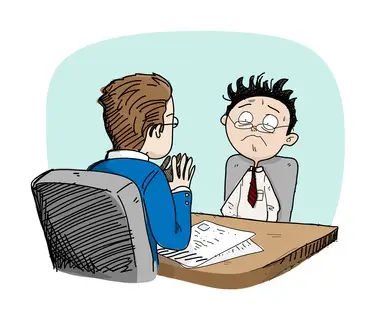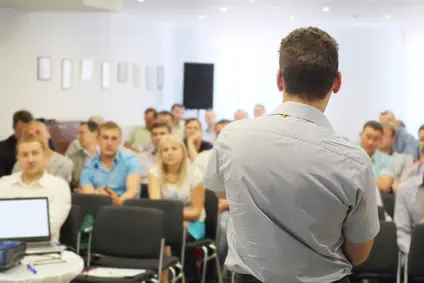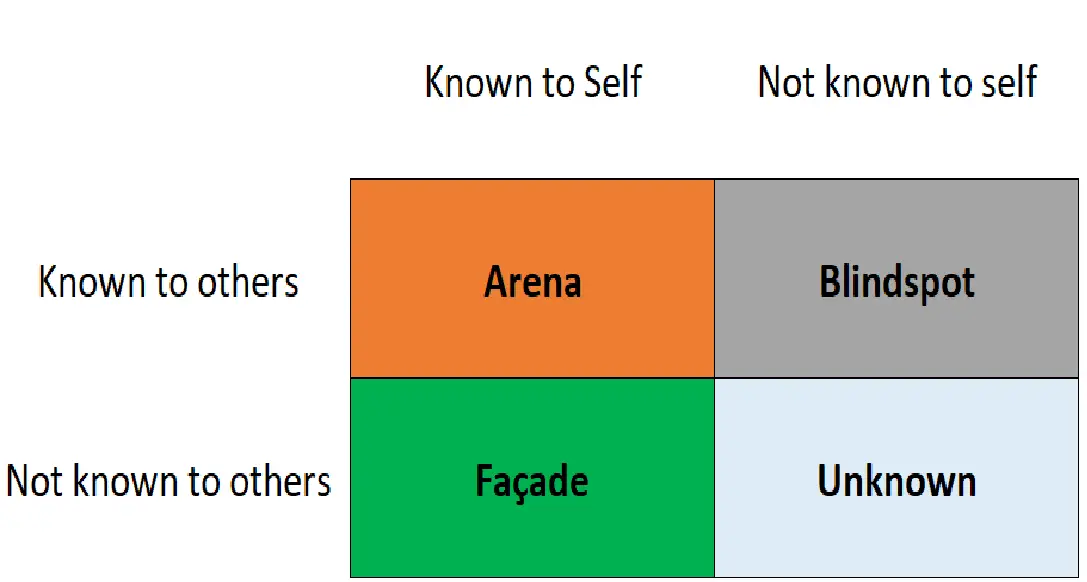It happened to every one of us who did at least one job interview in his life. The candidate makes a serious, ambitious, professional and reliable impression. A month after getting started we find that every connection between the character he played in the interview and the real persona is completely accidental. Can we avoid such cases? and how to conduct a Structural behavioral interview

Is it important to counduct a professional job interview? how do i write down the questions?
Many times I have been asked by employees, clients and colleagues why it is so important to do a job interview properly. After all, neither of us can accurately diagnose the aplicants 100%. We are all wrong and we sometimes take on employees who are not fit for the organization or the job. So why bother?
The answer to that question is in fact very simple. We are all wrong, but some are less wrong than others. When you learn to interview and diagnose professionally, you are less mistaken and more likely to receive significantly higher quality candidates. How important is this? Napoleon said the military is marching on its stomach, and most of the world's most respected CEOs say the organization is moving forward when it has high-quality employees.
Freestyle interviewers vs. template interviewers
We've all came across one or two freestyle interviewers in our lives. Those who do not work with a page or a set of prepared questions. They are usually the biggest objectors of the template and their ability to feel and connect to the candidate will determine whether or not they are accepted for a position in the company. Every interview is completely different from the other. The questions are not repeated and sometimes it is not clear what he is asking. Incidentally, although there are many problematic issues when working in such a way, I have seen such interviewers as excellent.
And why were they like that? Exactly from the reson that they feared the most - the interviewer was not working from intuition as he likes to pride, he asked relevant questions and promoted the interview according to the job's needs. His conclusions did not stem from feelings but from rational thinking and in-depth analytical analysis of the candidate's attributes, answers and behavior.
How is interviewing intuition and gut feeling are a rational interview and process? Very simple, because what people call a gut or intuition is an analytical process. How is this possible? That gut or intuition works in such a way that when we see a particular behavior, we go back and identify patterns of the same behavior, connect the same patterns in people and situations we have encountered in the past, and draw a completely statistical conclusion that predicts the candidate's future behavior.
If those interviewers who rely on feeling actually perform a thought and analysis process then where is the problem? Why aren't they interviewing well enough? For a number of reasons, the main one is that they conclude how someone will behave in complex work situations based on their behavior in an unnatural situation that is a job interview. I will elaborate on the problems that can draw conclusions in this way.
In complete reversal to freestyle interviewers, the template people leave nothing to luck. The questions are ready in advance. Each answer indicates a trait or behavior trait of the candidate and almost nothing remains to be interpreted. Everything is clear and you can know everything about the candidate before getting it to work, say the template people (and boy they are wrong). Anyone who comes in for an interview with all the questions ready in advance without being able to move left or rightis missing pieces of knowledge that we don't get in the process.
About a long, tedious and unnecessary HR interview and human resources interview
It happened to you once that you were in a recruitment process in an organization that was looking for a very important candidate. They performed a very long process. Assessment center, psychotechnic tests, interview with a psychologist, three interviews with different managers in the organization, language test, personal assignment and many other things.
I would like to ask the process engineers one simple question: Would you also like to go through a lengthy, cumbersome and exhausting screening process? probably not. Will quality personnel really wait for you to complete the process? In many cases not. They will simply find a job elsewhere and you will have to satisfy other (less talented) candidates who are unable to find a job and therefore remain in the process. Definitely material for thought. And, by the way, why don't you inform candidates in a timely manner whether they were accepted or not? Why wait two or three weeks for an answer? I have been present in hundreds of recruitment processes in my life - we usually know the answer 5 minutes after the candidate walks out the door (and sometimes even before). So why not let him know? Is this the attitude you would like to have? Do you think he will recommend your organization?
So how do you conduct a proper in-depth interview and recruit the appropriate candidate?
First of all, we must acknowledge that we will not always be able to recruit the best candidate. No one in the world is able to predict and anticipate the behavior and suitability of the candidates for the role we are dedicated to. So what do we do? Remember we talked about freestyle interviewers vs. template interviewers? The answer lies somewhere in the middle. At the beginning of each interview, we will present our name, an explanation of the role in a few words, the organization or business unit and of course we will tell a few words about the company's successes in order to get the candidate to want and work for us.
At the beginning of the questionnaire we will work on a "clean table" with the characteristics we are looking for in the candidate for the position. A few general questions should be prepared for each feature or characterization we are looking for and the interview will continue spontaneously on each topic. You cannot anticipate all the candidate's answers in advance and all questions must not be prepared in advance. The sequence, interview rate, and type of questions vary according to the candidate's responses and behavior during the interview. For example, if an interviewer is talking about a particular workplace, he will be asked specific and relevant questions for that workplace. A question for a candidate who previously worked at a high-tech job is different from a candidate who worked in the factory before (and can sometimes be similar). The answer may lead us to further questions about the workplace, or alternately decide that we have received the information we need.
At the end of the interview we will elaborate on the role a little more in depth such as: working hours, transportation to the office, wage, etc. Ask the candidate if he has anything else he wants to ask or add. We will then thank the candidate who came and tell him about the continuation of the process, including clear schedules and deadlines for receiving a positive or negative answer.
Phone interview questions - How to interview people on the phone
The purpose of a phone interview is usually to examine an initial match of the candidate to the position. This is in order for us to examine whether he is relevant for further process and interview. My recommendation is to work with a checklist that examines the professional duty requirements of the job, adjustment to the proposed salary, required experience and availability for the job according to the organization's needs. A telephone interview is not a personal interview and should not take more than 10-15 minutes depending on the job. In all positions and with the emphasis on senior executives it is very important to make a detailed explanation of the company and the job as the candidate may be suitable for us, but from his side he does not want to come for an interview. Coordinating clear expectations on the phone can save the company and managers dozens of hours a month in irrelevant job interviews and even improve the branding of the company in the eyes of the candidates.
How to Interview Correctly - Structural Behavioral Interview Technique
When conducting an interview according to the technique we want to ask ourselves the following questions:
- What do we check on the candidate?
- What do we want to ask?
- How do we select the questions for the interview?
- Do we check the things we really want to check?
- What are the conclusions we draw from the answers and are these the correct conclusions?
- Is the behavior of the candidate or candidate in the interview the same as their behavior in real work situations - body movements, clothing, motivation, energy, etc.
- According to the technique we are supposed to compare candidates in the same way, that is - to check the same things for all candidates (not necessarily to ask exactly the same questions, but to work with the same structure). Understand that in the recruitment profile, we need to consider exactly what character traits we want the candidate to have and define complex situations in the workplace. It is important not only to define the situations, but also to define how we expect the candidate to behave in each situation. The selection of questions for the interview will be done according to the situations we choose and when working correctly with the technique, the conclusions are usually accurate and are exactly answered by the candidate.
The principles of the interview method
We tend to repeat patterns of behavior in similar situations, so in the interview we will look at identical situation in previous workplaces or individual conduct of candidates, and thus we can derive the candidate's future behavior in identical situations in the workplace.
Examining real situations and cases - not behavior usually, without feelings or emotions. Ask the candidate to elaborate on a case that happened in the past and direct it while interviewing for places that interest us as interviewers
The guideline - that is, the personal and professional situations will be the same for all candidates, but each candidate will probably bring different cases and the subsequent questions we want to delve into will differ from candidate to candidate. The conclusions we will always draw are where we understand how the candidate (and all other candidates) behave in the same situation. For example, in a situation where a candidate encounters a problem that cannot be solved through the existing processes, one candidate can check on Google, ask colleagues in the office and even call past colleagues while another candidate waits for an answer from their manager. There is no right or wrong here, every manager wants an employee who will behave differently in this kind of situation.
The candidate is different in real life than his behavior in the interview as it is a stressful, unnatural situation and does not simulate the daily reality at work and therefore we will examine the candidate's suitability according to the situations given rather than the body language and feeling we get in the interview itself. Incidentally, it is important not to completely reject the candidate's conduct in the interview as in some cases there is a blatant or unacceptable form of conduct, but it is important to understand that this is not a reliable diagnostic tool.
Questions that must not be asked in a job interview - are not prohibited by anything (besides local labor law) and there is no rule about what you should not ask in a job interview, but as I explained in the previous sections, there are questions in a job interview that do not provide much diagnostic value. Questions about feelings, of the candidate, opinions on certain topics, etc. With questions of this nature, we direct the interviewee to provide subjective information that does not allow for clear diagnosis in the process.
Interview structure
From past experience, I believe a quality interview starts with a proper structure and not an accurate script. Anyone can say things in their own words, but work according to a clear structure.
Sample structure:
- An opening that will contain the following:
- Thanks for coming
- Nice to meet you, my name is X and my role in the company is YYY
- A brief explanation of the company
- A brief explanation of the department
- A brief explanation of the role
- Chemistry - Relieving the tension to create a pleasant and open atmosphere in conversation - for example: Ask the candidate to tell about himself on a personal level
- Personal Questions by Situations
- Professional questions according to situations
- End of Interview - Perform the following
- Question about salary expectations
- Examining the availability of the candidate to get started
- A brief explanation of the job training process
- Details on how to proceed and when and how we will respond
- Allows the candidate to ask questions or add important details
Summary
A successful job interview stems from the interviewee's ability to ask the right questions and more importantly, to know how to diagnose and adjust the candidate's answers to the requirements and characterization of the job. The highest level of fit in the hiring process comes from a combination of a proper job interview and tailored to the job along with an accumulated experience of the interviewer. ask the right questions and diagnose the candidate's answers in the most correct way to go.
About the writer
Roy is a senior consultant in the field of corporate recruitment in the worlds of senior managment, service and sales. Roy served for many years as a director of recruitment and training processes in leading organizations in the Israeli economy and global companies in Europe.
Other Articles you might like:
- 10 tips that will change your business
- Johari window feedback method
- Why is it important to hire a business consultant
- Amazing tips for team meetings





